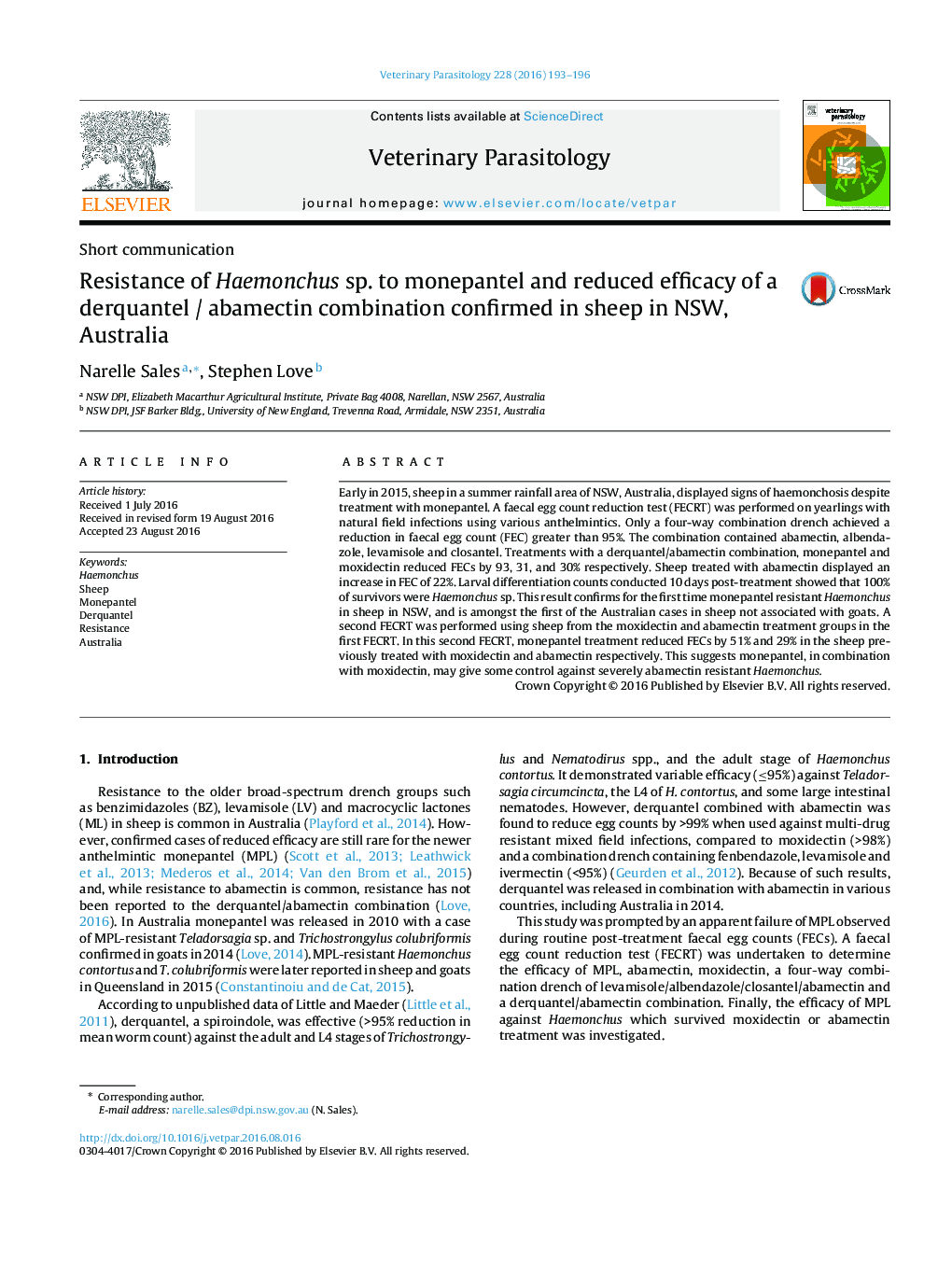| Article ID | Journal | Published Year | Pages | File Type |
|---|---|---|---|---|
| 5801995 | Veterinary Parasitology | 2016 | 4 Pages |
â¢The first NSW field case of monepantel resistant Haemonchus sp. not associated with goats confirmed.â¢Monepantel resistance despite only 4 years of previously effective annual use.â¢Also resistant to abamectin and moxidectin with reduced efficacy of derquantel + abamectin.â¢Prior treatment with moxidectin or abamectin appeared to increase monepantel efficacy.
Early in 2015, sheep in a summer rainfall area of NSW, Australia, displayed signs of haemonchosis despite treatment with monepantel. A faecal egg count reduction test (FECRT) was performed on yearlings with natural field infections using various anthelmintics. Only a four-way combination drench achieved a reduction in faecal egg count (FEC) greater than 95%. The combination contained abamectin, albendazole, levamisole and closantel. Treatments with a derquantel/abamectin combination, monepantel and moxidectin reduced FECs by 93, 31, and 30% respectively. Sheep treated with abamectin displayed an increase in FEC of 22%. Larval differentiation counts conducted 10Â days post-treatment showed that 100% of survivors were Haemonchus sp. This result confirms for the first time monepantel resistant Haemonchus in sheep in NSW, and is amongst the first of the Australian cases in sheep not associated with goats. A second FECRT was performed using sheep from the moxidectin and abamectin treatment groups in the first FECRT. In this second FECRT, monepantel treatment reduced FECs by 51% and 29% in the sheep previously treated with moxidectin and abamectin respectively. This suggests monepantel, in combination with moxidectin, may give some control against severely abamectin resistant Haemonchus.
